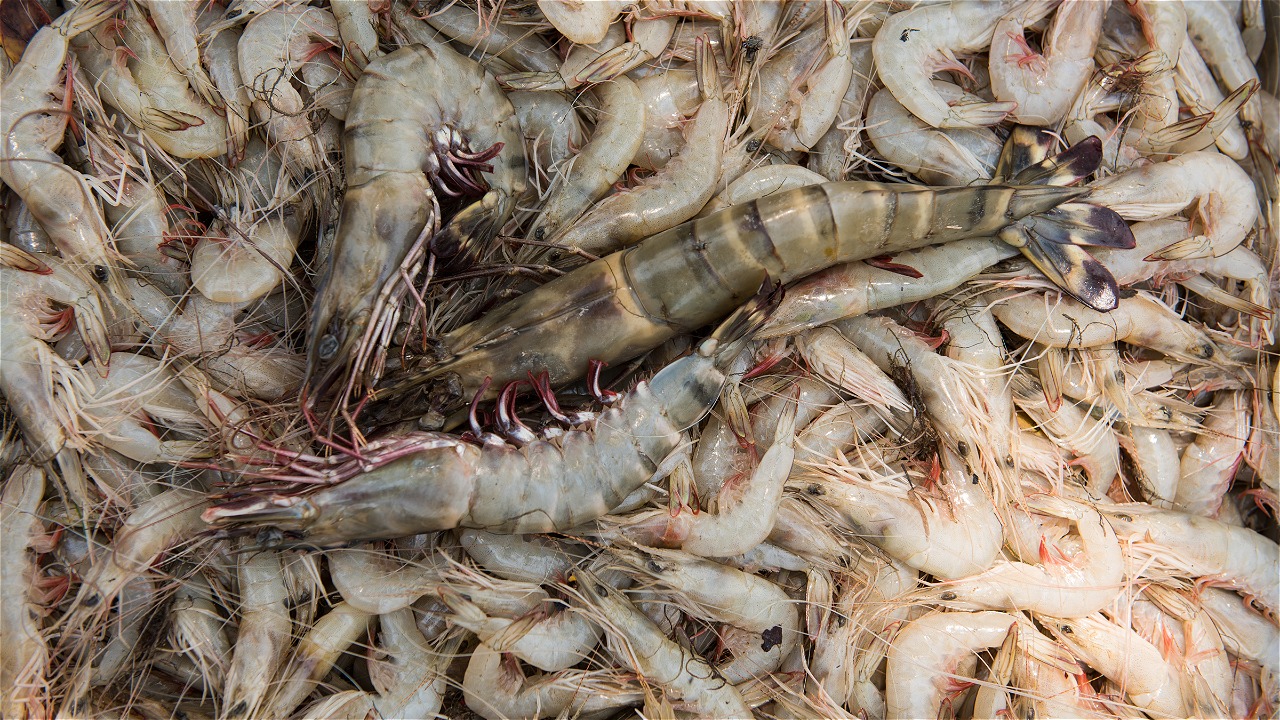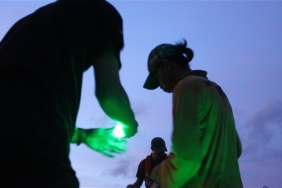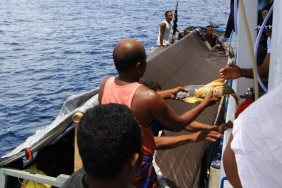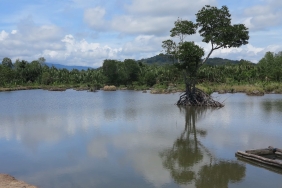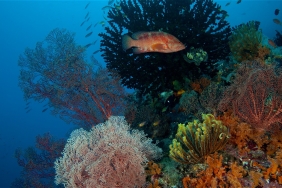GOING TO TIGER SHRIMP FARMS IN ACEH
By Agis Riyani and Wahju Subachri
WWF-Indonesia collaborated with the JUN (Jak U Neuheun) group to conduct an aquaculture improvement program (AIP) for tiger shrimp farming in Blangmangaat Village, Lhokseumawe District, Aceh. The AIP for the JUN group has been running since 2011 and as a result the tiger shrimp farming conditions around Blangmangaat Village are quite advanced. However, the organization (such as a chairperson, secretary and treasurer) had not yet been established. However, in 2013, after counseling from the Department of Marine Affairs and Fisheries, the JUN group took the initiative to form its institutional structure. And in March 2014 the notarial deed regarding the institutional structure of the JUN group was renewed.
Jak U Neuheun, which in Indonesian means go to the pond, is a tiger shrimp farming group. The group originally numbered 70 people, but now only 25 are committed to practicing tiger shrimp farming in accordance with Better Management Practices (BMP) standards. The size of ponds owned by JUN group members ranges from 2,000 to 3,000 Ha.
To support tiger shrimp farming activities, various approaches were also made, for example with the local Marine and Fisheries Service, fisheries extension workers, and shrimp farming businesses around the location. Socialization and training on BMP understanding was conducted at the beginning of each cycle to increase the understanding of farmers who are members of the JUN group. In the socialization and training activities, shrimp farmers from tiger shrimp hatcheries were also invited to introduce how to select quality fry. In 2013, a socialization was also conducted for fisheries extension officers to increase their knowledge on responsible tiger shrimp farming practices.
To date, JUN group members' compliance with BMPs has increased to 20%. This is evidenced by the use of liming at the beginning of each pond preparation, the use of saponin to eradicate pests in the pond, the selection of certified fry, and the decrease in the use of hazardous chemical products.
During the implementation of BMP, the yield obtained so far is about 75 - 200 kg or worth 6 - 16 million per cycle. With the results obtained, the farmers have experienced profits because each cycle they only spend capital of about 2 - 4 million. Therefore, in order for tiger shrimp farming, especially in Blangmangat Village, to continue to improve, WWF-Indonesia hopes that the members of the JUN group can truly adopt BMP standards and village regulations are made that explain the joint stocking system in each village.

